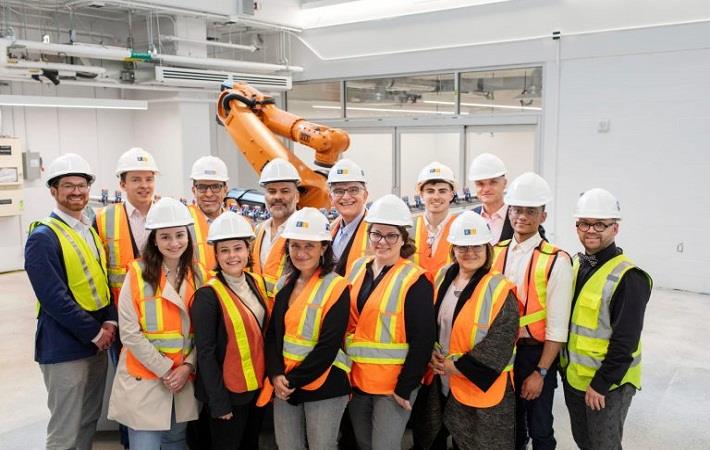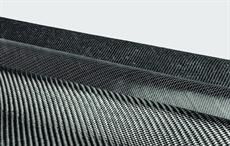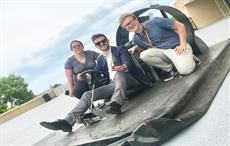
Through this collaboration, the new Myant Textile Computing lab at FCAD will enable groundbreaking collaborative research across disciplines into new user experiences, advanced textile design, and novel fabrication processes, said Myant in a press release.
Textile computing refers to the integration of technology, notably biometric sensors and actuators for the transmission of heat and stimulus, into the very fibres of textile-based products. Textiles have long been inextricably linked to humanity. No other element provides such universal coverage: 100 per cent of the population, nearly 100 per cent of the time, and nearly 100 per cent of the body’s real estate. Today, advances in material science allow for the integration of technology in textiles at the nanoscale, which makes it possible to create an invisible technology platform that can transform healthcare and related fields by acting as the last mile between expertise, the Internet of Things, and our bodies. With the creation of the Myant Textile Computing lab, FCAD aims to empower students and faculty to develop solutions to real-world problems across industries through design and fabrication.
“An international leader in the realm of textile computing, Myant is at the forefront of the next wave of industrial and commercial innovation in Canada,” said Charles Falzon, dean of Ryerson University’s FCAD. “Our students and faculty live at the intersection of design, technology and user experience, and we are excited to work with Myant to unlock new possibilities for the future of human-machine interactions through textile computing.”
“Ryerson’s interdisciplinary approach makes it a natural partner for Myant and supports our efforts to turn Toronto into the global home for textile computing expertise,” said Tony Chahine, CEO and founder of Myant. “Together we can help re-energsize the cultures of design and manufacturing in Canada by linking innovative ideas and research with industrial production to create solutions that improve the lives of millions.”
The potential applications of textile computing are immense and cross every sector, with immediate opportunities in health and wellness, automotive, aerospace, performance apparel and more. (PC)
Fibre2Fashion News Desk – India

